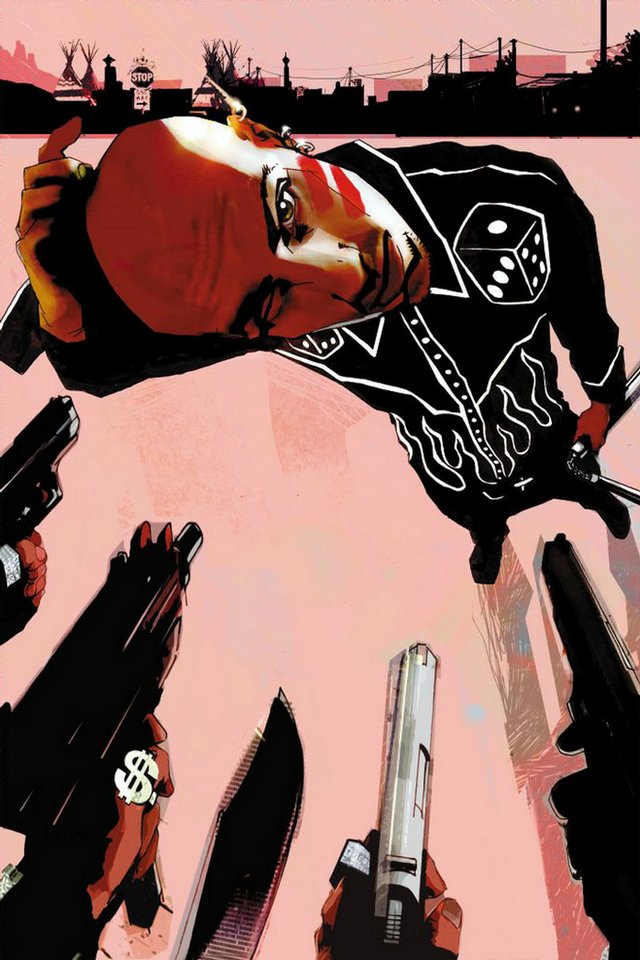Julia Good Fox, an instructor in the College of Indigenous and American Indian Studies at Haskell Indian Nations University, said she sees stereotypical aspects in the series.
"We can see the motifs occurring still of Wild-West mentality, savagery, and hypersexuality," said Good Fox, who has her students use comic books to analyze representations of Native Americans in popular culture.
"Here you have a setting that's beyond the civilized borders of a town or city," she added. "The reservation's the equivalent of the Wild West and lawlessness."
But "Scalped" isn't the only comic available to readers looking for the Native American perspective.
Rob Schmidt, creator and self-publisher of "Peace Party," a multicultural comic book featuring Native Americans, said that his series is on the other end of the spectrum from "Scalped."
"I realize there's a place for entertaining crime-related comics. I'm not opposed to those in general," Schmidt said in a telephone interview from Culver City, Calif. "But there have been quite a few of them. There's also a need for comics that present more of a realistic and diverse view of Native cultures today."
Aaron said he doesn't think his characters are as transparent and negative as Schmidt seems to think they are. His aim, he said, was to create a story in which the good guys aren't always likeable and bad guys are sometimes hard to hate.
"Everything is much more gray in that you don't always know who to identify with in terms of characters and who to root for," he said.
As for the bad guys, Lincoln Red Crow is easy to hate so far, since he's almost pure evil. So SCALPED has mostly unlikable characters and totally unlikable characters. That isn't gray, it's almost pitch black.


No comments:
Post a Comment